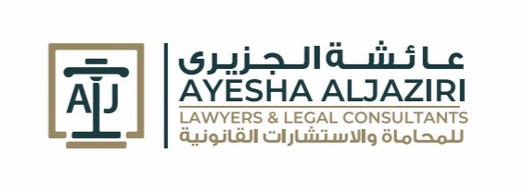Ayesha Aljaziri Lawyers & Legal Consultants is a premier full-service law firm in Dubai, United Arab Emirates, founded by respected attorney Ayesha Aljaziri. As experienced lawyers in Dubai with full rights of audience before all UAE courts (civil, Sharia, commercial, and appellate), we provide trusted legal solutions to foreign investors exploring the UAE’s dynamic free zone ecosystem. Our multilingual lawyers advise across 14+ practice areas and deliver end-to-end support—from feasibility and licensing to contracts, compliance, and dispute resolution—so your free zone business can launch with confidence and scale sustainably.
Key Takeaways:
- UAE Free Zones offer foreign investors clear advantages—such as 100% foreign ownership, streamlined licensing, and customs efficiencies—while still requiring careful compliance with corporate, tax, and regulatory frameworks.
- Selecting the right free zone (industry-specific or general) depends on your business model, supply chain, customer location, and regulatory needs.
- Strong legal groundwork—entity selection, contracts, banking, employment, and ongoing compliance—prevents costly setbacks and supports long-term growth.
What Is a Free Zone?

A UAE free zone is a designated jurisdiction that allows businesses to operate with 100% foreign ownership and access simplified incorporation, licensing, and visa frameworks. Free zones typically provide customs advantages for goods moving within the zone and purpose-built infrastructure such as flexi-desks, fitted offices, warehouses, and logistics corridors. Well-known examples include the Dubai Multi Commodities Centre (DMCC) and Jebel Ali Free Zone (JAFZA), each offering diversified licenses and ancillary services to support start-ups and established enterprises.
Critically, free zone companies must still follow applicable UAE laws and regulations (for example, registration, accounting, audit, ultimate beneficial owner disclosures, and sector-specific rules). Where relevant, VAT may apply, and corporate tax treatment depends on whether the entity qualifies for preferential free zone treatment on certain income and whether activities are conducted with other free zone entities or the UAE mainland. Our corporate lawyers in Dubai explain these points at the planning stage to avoid surprises.
Benefits of Setting Up in a Free Zone
Free zones are designed to attract international business with a practical mix of incentives and support services:
- 100% foreign ownership: No need for a local shareholder in most free zones.
- Customs efficiencies: Facilitated movement of goods within the free zone; imports into the UAE mainland remain subject to applicable customs rules.
- Licensing speed and clarity: Straightforward processes and defined license categories (commercial, service, industrial, e-commerce, and more).
- Purpose-built ecosystems: Clusters for commodities, technology, media, logistics, and manufacturing create natural networking and supply chain advantages.
- Modern infrastructure: Office, warehouse, and light industrial units with integrated utilities and connectivity.
- Corporate tax treatment: Free zone companies may benefit from a preferential regime on qualifying income, subject to strict conditions and ongoing compliance. Non-qualifying income may be taxed at prevailing rates.
While the benefits are compelling, the fine print matters. You should calibrate operations to preserve any available tax advantages (for example, aligning the nature of transactions and counterparties with qualifying criteria). Our commercial lawyers in Dubai help structure contracts and supply chains that fit your free zone model.
Types of Free Zones in the UAE
Industry-Specific Free Zones
Industry clusters such as media, technology, and healthcare enable sector alignment and access to specialized facilities. For instance, media clusters may offer production studios and broadcast connectivity, while tech hubs emphasize data centers and scalable digital infrastructure. These ecosystems also deliver curated networking, accelerators, and partner introductions that shorten go-to-market timelines. If your business relies on specialized labs, platforms, or content production, an industry-focused zone can accelerate adoption.
Digital businesses should also consider compliance (data protection, content, and telecom rules). Our technology, media & telecommunications lawyers align licensing and data governance with your operational architecture.
General Free Zones
General or multi-industry free zones such as DMCC and JAFZA support diverse activities—trading, services, light manufacturing, and logistics. They are ideal for companies that value flexibility in license upgrades, larger warehousing footprints, multimodal logistics options, and proximity to seaports/airports. These zones also maintain mature regulatory teams and robust service provider networks (banks, auditors, insurers), which can reduce friction as you scale into regional trade.
Legal Framework and Compliance
While free zones simplify business establishment, a disciplined compliance program is essential. Core elements include:
- Entity formation & licensing: Select the license category that reflects your actual activities and obtain authority approvals, including for regulated sectors (finance, healthcare, education, etc.).
- Constitutional documents: Draft clear articles and shareholder agreements covering governance, share transfers, deadlock, and dispute resolution. Our corporate team ensures alignment with free zone regulations and commercial reality.
- Accounting, audit & reporting: Maintain accurate books, prepare annual financial statements, and complete audits where required by your free zone authority. Keep timely VAT and corporate tax filings as applicable.
- Economic Substance & UBO: Assess Economic Substance Regulations (ESR) obligations and file notifications/reports on time; maintain up-to-date Ultimate Beneficial Owner records.
- AML/CFT readiness: If you operate in a regulated space (e.g., financial services, real estate brokerage, dealers in precious metals), implement robust AML policies, KYC procedures, and training.
- Employment & visas: Issue compliant employment contracts, respect wage protection systems, and track visa and license renewals in advance.
- Contracts & IP: Protect trademarks and trade secrets; use supplier and customer contracts that allocate risk, warranties, and liability limitations appropriately. Our arbitration lawyers in Dubai can also embed effective dispute resolution clauses.
Step-by-Step: Setting Up a Free Zone Company
1) Define your business model and zone selection
Map your revenue streams, counterparties (free zone vs. mainland vs. foreign), physical needs (desk vs. warehouse), and sector rules. Shortlist two or three zones whose license menus, lease terms, and infrastructure align with your plan. Consider transport links and customer proximity—especially for trading and logistics-heavy models. For supply chains that depend on port connectivity, our transport & logistics law team can advise on the best-suited zones.
2) Choose the legal form and share capital
Most investors opt for a limited liability free zone company (FZ-LLC) or a branch of a foreign company. Confirm any minimum share capital, bank letter requirements, and the feasibility of virtual/flexi-desk packages if you do not need a dedicated office initially.
3) Name reservation, initial approvals, and documentation
Reserve a compliant trade name and secure initial activity approvals. Prepare passports, proof of address, a concise business plan, and board resolutions (for corporate shareholders). Industry-specific approvals may be needed for education, healthcare, or financial activities.
4) Lease an approved office solution
Most free zones require evidence of premises—ranging from flexi-desk to warehouse. Ensure the lease aligns with visa quotas and operational needs. Consider scalability clauses to expand smoothly.
5) License issuance and corporate bank account
Once fees are paid and documents verified, the authority issues your incorporation documents and license. Next, open a corporate bank account. Banks will request KYC documents and may assess the business model, source of funds, and expected transaction volumes. Our team streamlines onboarding by preparing bank-ready compliance packs.
6) Operational readiness and governance
Implement internal policies (finance, procurement, AML, data protection), set up cloud accounting, and schedule audit/return deadlines on a shared calendar. Establish standard-form sales contracts, NDAs, supplier agreements, and employment terms. As a full-service law firm Dubai businesses trust, we draft, review, and localize documentation so your controls are fit for purpose from day one.
Cost Considerations
Initial Setup Costs
Set-up budgets vary by zone, license type, and premises. Typical line items include registration and name reservation, license fees, establishment card, office lease (flexi-desk to warehouse), and visa packages. Add professional fees for legal drafting, translation (where required), and auditing. We recommend building a contingency buffer to accommodate additional activity approvals or upgraded office needs as your team grows.
Ongoing Operational Expenses
Annual renewals, visa maintenance, utilities, insurance, accounting, audit, and bank charges are common recurring costs. Budget for software subscriptions (ERP, accounting, HR), cyber security, and IP renewals. If you trade in regulated goods or services, factor in compliance training and periodic policy reviews to stay aligned with evolving requirements.
Risk Management and Disputes
Even with careful planning, disputes can arise: delayed shipments, quality claims, unpaid invoices, or partner disagreements. Embed clear governing law and jurisdiction/arbitration clauses in all contracts, define acceptance and inspection standards, and set pragmatic notice and cure periods. Should a dispute escalate, our firm’s full rights of audience before all UAE courts allow seamless progression from negotiation to litigation when necessary, without relying on external counsel. Explore our capabilities in UAE court representation for complex matters spanning civil, commercial, and appellate forums.
Frequently Asked Questions
Do free zone companies pay corporate tax?
Free zone entities may benefit from a preferential corporate tax regime on qualifying income if they meet defined conditions and maintain ongoing compliance. Non-qualifying income may be subject to the generally applicable rate. A tailored assessment is essential to structure activities correctly.
Can a free zone company trade with the UAE mainland?
Yes—subject to applicable rules. Many free zone entities service mainland customers via licensed distributors, agents, or by establishing a mainland branch or subsidiary. Customs/VAT and licensing considerations must be addressed in the operating model.
What documents are typically required to incorporate?
Passports for shareholders and managers, a business plan, proof of address, board resolutions (for corporate shareholders), a signed lease or flexi-desk agreement, and completed authority forms. Some sectors require additional approvals and professional qualifications.
How long does the process take?
Timeframes vary by free zone, license type, and completeness of your documentation. Early legal review and a clear checklist are the best ways to accelerate approvals.
Is a physical office mandatory?
Most free zones require an approved office solution—ranging from virtual/flexi-desk to dedicated offices or warehouses. Your choice impacts visa quotas and operational permissions.
How Our Law Firm Supports Foreign Investors
As a leading law firm in Dubai, we provide comprehensive legal services that align with the realities of free zone operations. Our team drafts and reviews shareholders’ agreements, commercial contracts, employment documents, and supplier frameworks; advises on VAT/corporate tax readiness; and implements compliance programs tailored to AML, ESR, and UBO obligations. With multilingual lawyers and sector depth across corporate, commercial, TMT, logistics, real estate, and more, we deliver practical, business-first advice throughout the company lifecycle.
For deeper guidance on corporate structuring and governance, speak to our corporate lawyers in Dubai. For trading, distribution, and supply chain arrangements, our commercial law team will shape contracts that manage risk while enabling growth. If a dispute arises, our arbitration lawyers in Dubai and litigators work seamlessly to protect your interests.
Next Steps

Whether you are launching a new venture or redomiciling a regional operation, a well-structured free zone setup can unlock speed, control, and cost efficiency. Begin with a clear business model, select the right zone and license, and put robust contracts and compliance in place from the outset. Our team provides bespoke advisory packages and fast turnaround times so your launch is smooth, your governance is sound, and your expansion pathway is clear.
Ready to move forward? Contact us for a focused consultation. We’ll review your goals, shortlist suitable free zones, outline an incorporation roadmap, and build a compliant documentation suite tailored to your sector. Reach our team via our contact page, explore our latest insights on the legal blog, or learn more about our sector capabilities in finance, healthcare, energy, and TMT.
Related Services
- Financial services & banking compliance for AML, risk management, and regulatory approvals.
- Real estate lawyers in Dubai for office leasing, warehousing, and property transactions.
- Litigation lawyers in Dubai with full rights of audience to represent you across all UAE courts.
This guide is for general information only and does not constitute legal advice. For tailored assistance with UAE free zone business setup, please contact Ayesha Aljaziri Lawyers & Legal Consultants.








